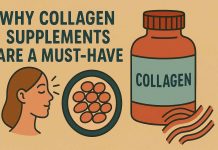Introduction
Experiencing hair loss can be a challenging journey, particularly for men who often feel self-conscious or uncertain about effective solutions. However, with the understanding and support of a loving partner, men can navigate this experience with greater confidence and insight. In this article, we’ll delve into the various aspects of hair loss, uncovering everything from the underlying causes to innovative treatments, and lifestyle solutions, and explore ways to support your husband on this journey with compassion and encouragement. By equipping yourself with knowledge and empathy, you can empower your husband to embrace effective solutions confidently and strengthen your bond along the way.
What Causes Hair Loss in Men?
Understanding the root causes of hair loss is the first step toward finding the right solutions. Here, we’ll explore the primary factors that contribute to hair loss in men.
Genetic Factors
Genetics play a significant role in hair loss, as androgenetic alopecia (also known as male pattern baldness) is a hereditary condition. This type of hair loss usually follows a predictable pattern and is influenced by family history.
Hormonal Changes
Hormonal fluctuations, particularly changes in levels of dihydrotestosterone (DHT), contribute to hair thinning. High levels of DHT can shorten the hair growth cycle, making hair follicles smaller and leading to gradual hair loss.
Medical Conditions
Certain medical conditions, such as alopecia areata and thyroid disorders, can also contribute to hair loss. These conditions affect the immune system or hormonal balance, which impacts the health of hair follicles.
Lifestyle Influences
Factors like stress, poor diet, and insufficient sleep can worsen hair healthChronic stress can lead to a condition called telogen effluvium, which causes temporary hair loss by disrupting the hair growth cycle, ultimately limiting hairstyle options for men.
Environmental Factors
Exposure to environmental pollutants and harsh chemicals can weaken hair and accelerate hair loss. Overuse of styling products, frequent exposure to UV rays, and chemical treatments can also lead to hair damage over time.
What Hair Loss Treatments are Available for Men?
There are numerous treatments available to help manage hair loss, ranging from topical solutions to surgical options. Here, we’ll explore some of the most effective treatments.
Topical Treatments
Topical solutions, like minoxidil, are popular treatments for hair loss. Minoxidil works by stimulating hair follicles, prolonging the hair growth phase, and is often used for androgenetic alopecia.
Oral Medications
Prescription medications like finasteride reduce DHT levels, slowing down hair loss progression. Finasteride is often recommended for male pattern baldness, though it requires consistent use for visible results.
Platelet-Rich Plasma (PRP) Therapy
PRP therapy involves injecting a concentration of platelets into the scalp to stimulate natural hair growth. This treatment utilizes the body’s healing properties and is a non-surgical option with minimal downtime.
Hair Transplant Surgery
For those with advanced hair loss, hair transplant surgery is a viable option. Techniques such as Follicular Unit Transplantation (FUT) and Follicular Unit Extraction (FUE) involve moving hair follicles from one area of the scalp to the thinning or balding area.
Laser Therapy
Laser therapy stimulates cellular activity within hair follicles, encouraging hair regrowth. Low-level laser therapy (LLLT) is a non-invasive treatment often used alongside other treatments to maximize results.
How Can Lifestyle Changes Support Hair Health?
Incorporating specific lifestyle changes can contribute to better hair health. From dietary improvements to stress management, each lifestyle modification plays a role in supporting healthy hair growth.
Balanced Diet
A diet rich in vitamins and minerals, including vitamins A, C, and E, as well as iron and zinc, supports hair health. Protein-rich foods, such as lean meats, eggs, and legumes, provide essential amino acids that strengthen hair follicles.
Stress Management
Chronic stress can exacerbate hair loss, so adopting stress-relieving practices is crucial. Techniques like meditation, deep breathing exercises, and yoga can help alleviate stress and its impact on hair health.
Regular Exercise
Exercise promotes healthy circulation, which improves blood flow to the scalp and strengthens hair follicles. Engaging in regular physical activity can indirectly benefit hair growth by enhancing overall health.
Adequate Sleep
Sleep allows the body to regenerate and repair, which is essential for hair growth. Aim for 7-8 hours of quality sleep per night to support the hair’s natural growth cycle.
Hydration
Drinking sufficient water keeps hair hydrated and prevents dryness. Well-hydrated hair is less prone to breakage and contributes to a healthier appearance overall.
What Role Does Emotional Support Play in Hair Loss Management?
Providing emotional support can help reduce the mental and emotional toll of hair loss. Here are ways to help your husband feel valued and understood.
Open Communication
Encourage honest conversations about his feelings regarding hair loss. This openness allows him to express his concerns and fosters a supportive environment where he feels heard.
Positive Reinforcement
Emphasize his strengths beyond physical appearance. Remind him of his qualities and character, reinforcing his self-worth and diminishing the emphasis on appearance alone.
Patience and Understanding
Understand that the journey to hair regrowth or acceptance is unique for everyone. Offer patience as he navigates his options, whether pursuing treatment or embracing the change.
Exploring Solutions Together
Researching and exploring hair loss solutions as a team can reduce his anxiety. This shared effort makes him feel supported and empowered in managing his hair health.
Professional Counseling
If hair loss affects his confidence significantly, consider suggesting professional counseling. Therapy can offer him coping mechanisms and help boost self-esteem.
Summary of Hair Loss Solutions and Their Benefits
| Treatment/Action | Description | Benefits |
| Topical Treatments | Minoxidil and similar topical solutions to stimulate hair growth | Easy to use, non-invasive |
| Oral Medications | Prescription meds like finasteride to reduce DHT levels | Slows hair loss, works for male pattern baldness |
| PRP Therapy | Injections of platelets into the scalp to encourage natural growth | Non-surgical, utilizes body’s natural healing |
| Hair Transplant Surgery | FUT and FUE techniques to relocate healthy hair follicles | Effective for advanced hair loss |
| Laser Therapy | Low-level laser therapy to stimulate cellular activity in follicles | Non-invasive, complements other treatments |
| Balanced Diet | Nutrient-rich diet to strengthen hair follicles | Supports hair health from the inside out |
| Stress Management | Techniques like meditation and yoga to manage stress levels | Reduces stress-induced hair loss |
| Regular Exercise | Increases blood flow to the scalp | Improves circulation, benefits overall health |
| Adequate Sleep | Ensures 7-8 hours of quality rest | Supports hair’s natural growth cycle |
| Emotional Support | Providing reassurance and empathy to your husband | Boosts confidence, offers comfort |
Conclusion
Hair loss can be a sensitive subject for many men, impacting self-esteem and emotional well-being. By understanding the causes, exploring various treatments, and offering lifestyle solutions, you can empower your husband to make informed choices in his hair health journey. With your support, he can confidently approach this challenge and find effective solutions that align with his comfort and goals. The journey may vary, but a compassionate partnership makes it easier to face the changes together.
FAQs
- Can lifestyle changes alone prevent hair loss?
Lifestyle changes support hair health but may not entirely prevent genetic or hormonal hair loss. They can, however, slow down the process and improve overall hair quality.
- What is the most effective treatment for male pattern baldness?
The effectiveness varies by individual, but finasteride and hair transplant surgery are often recommended for advanced cases.
- How long does it take to see results from hair loss treatments?
Most treatments, like minoxidil or finasteride, require several months (3-6) for visible results. Consistency and patience are key.
- Are there side effects to hair loss medications?
Yes, some medications like finasteride may have side effects, including hormonal imbalances. It’s important to consult a doctor before beginning any treatment.
- How can I best support my husband emotionally during his hair loss journey?
Encourage open communication, offer reassurance, and focus on his strengths beyond appearance. Consider exploring solutions together to make him feel empowered.










